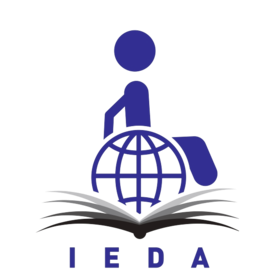About IEDA
Unfortunately, persons with disabilities do not enjoy the same level of educational freedom as others. They are often not given the same chances and opportunities in quality education, as the methods they receive knowledge are not adaptable to their needs.
Our Erasmus+ project “Inclusive education: ensuring participation of persons with disabilities in non-formal adult education (IEDA)” aims at developing a structured model for modifying or increasing the flexibility of existing adult education programs to be appropriate and accessible to persons with different disabilities, including the use of digital technologies to overcome barriers in the educational environment.
Our long-term goal is for this model to serve as the basis for future inclusive practices in non-formal adult education and equip education providers in this sector to confront challenges regarding diversity and inclusion.
Our structured model is comprised of three project results :
- A curriculum for training on methods and approaches to teaching persons with disabilities in non-formal adult education.
- A curriculum for training on the application of assistive technologies in non-formal adult education.
- A comprehensive Handbook on the integration of persons with disabilities in non-formal adult education.
Target Groups
- Professionals and practitioners in the field of non-formal education and related fields.
- Providers of services for persons with disabilities.
- Persons with disabilities.

